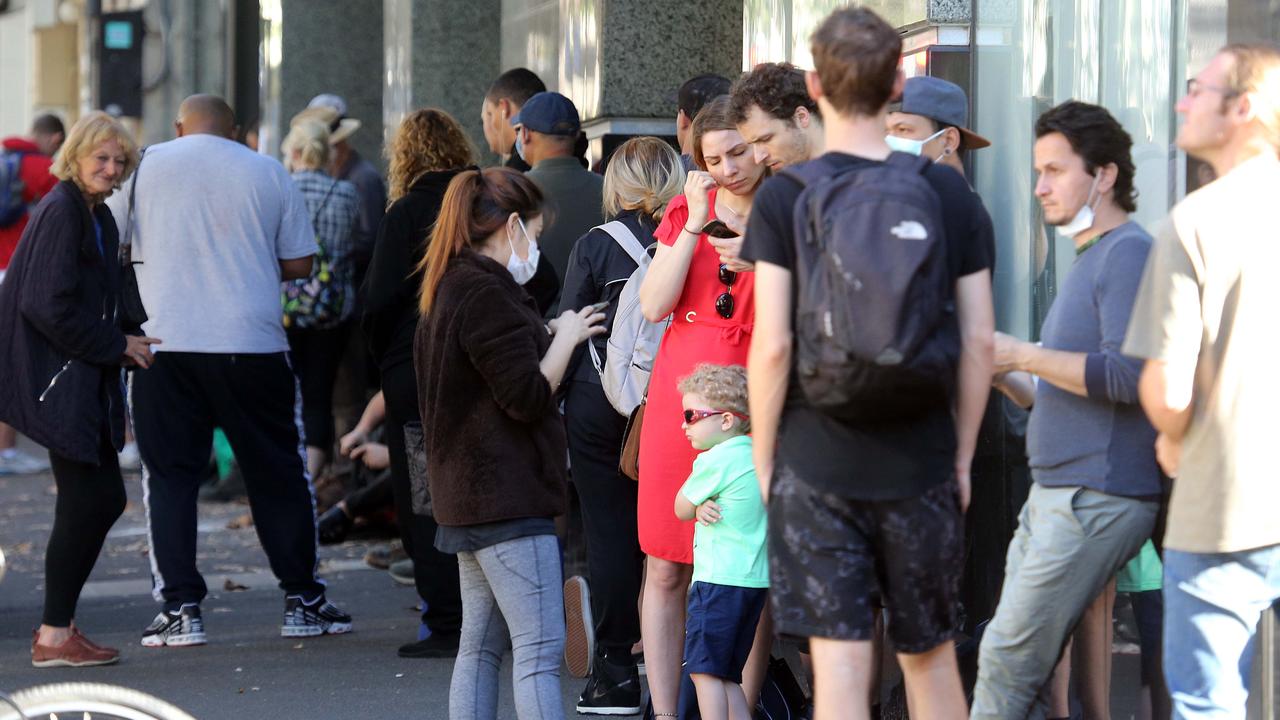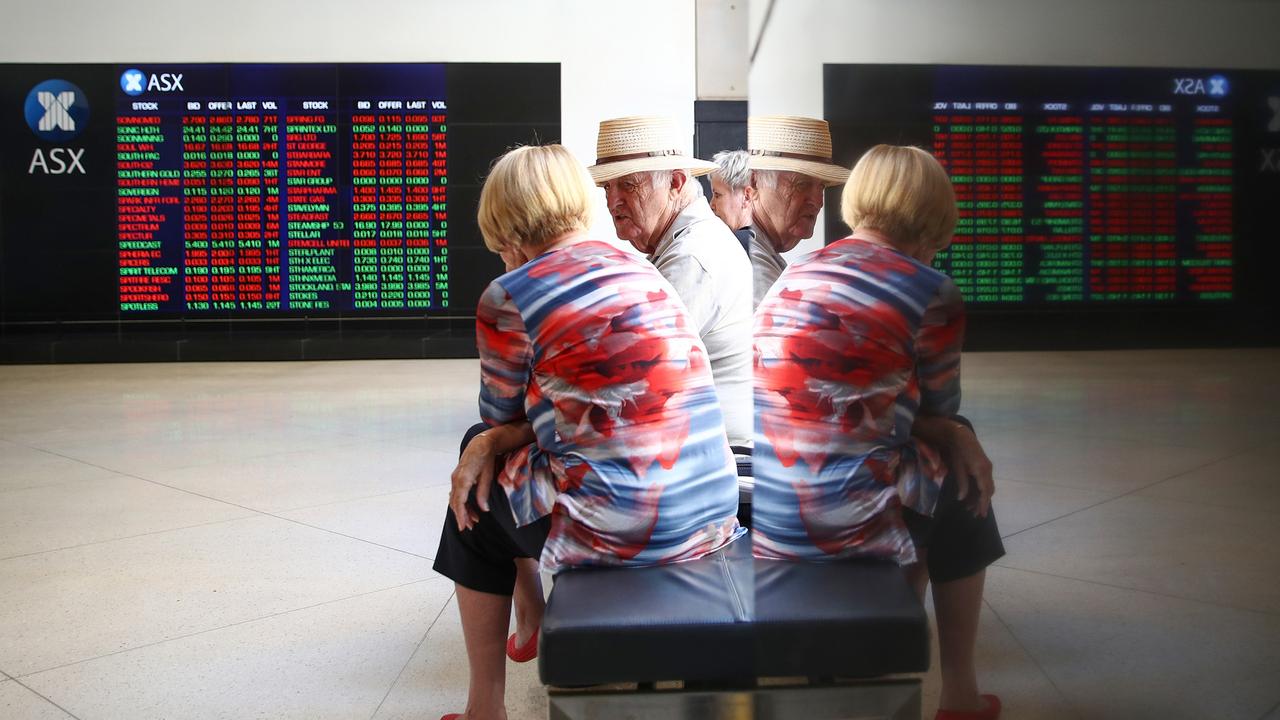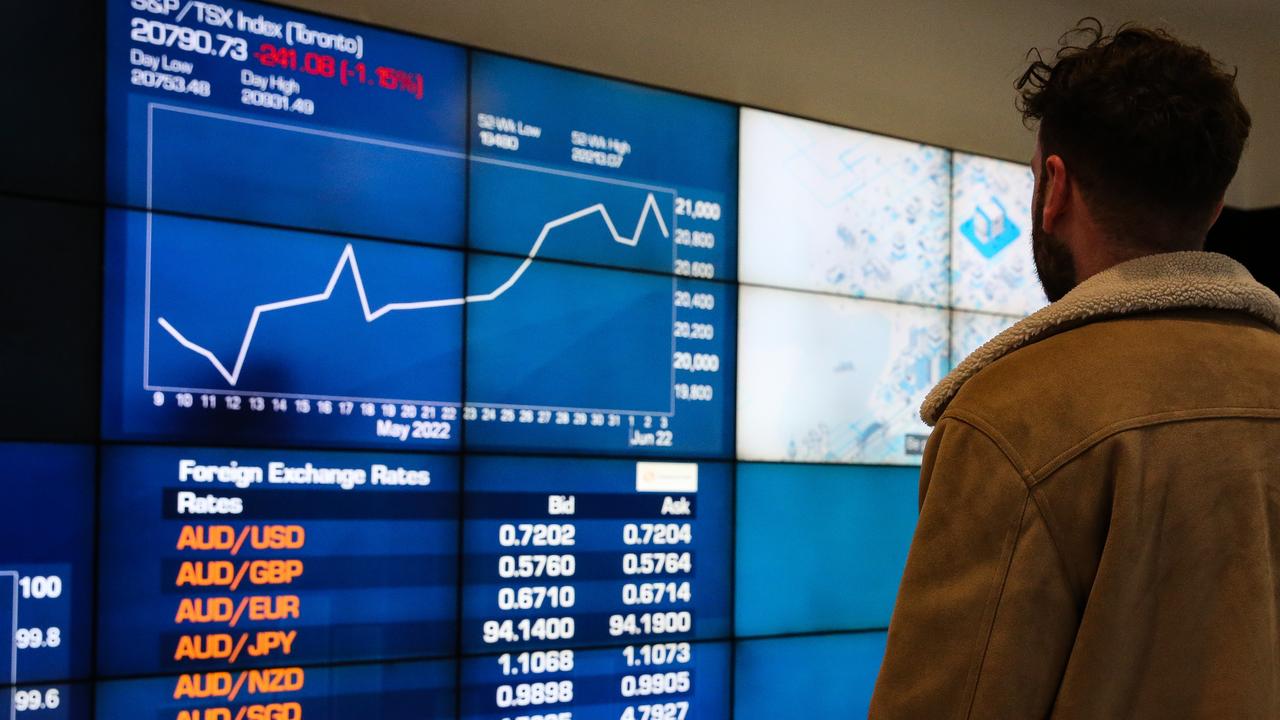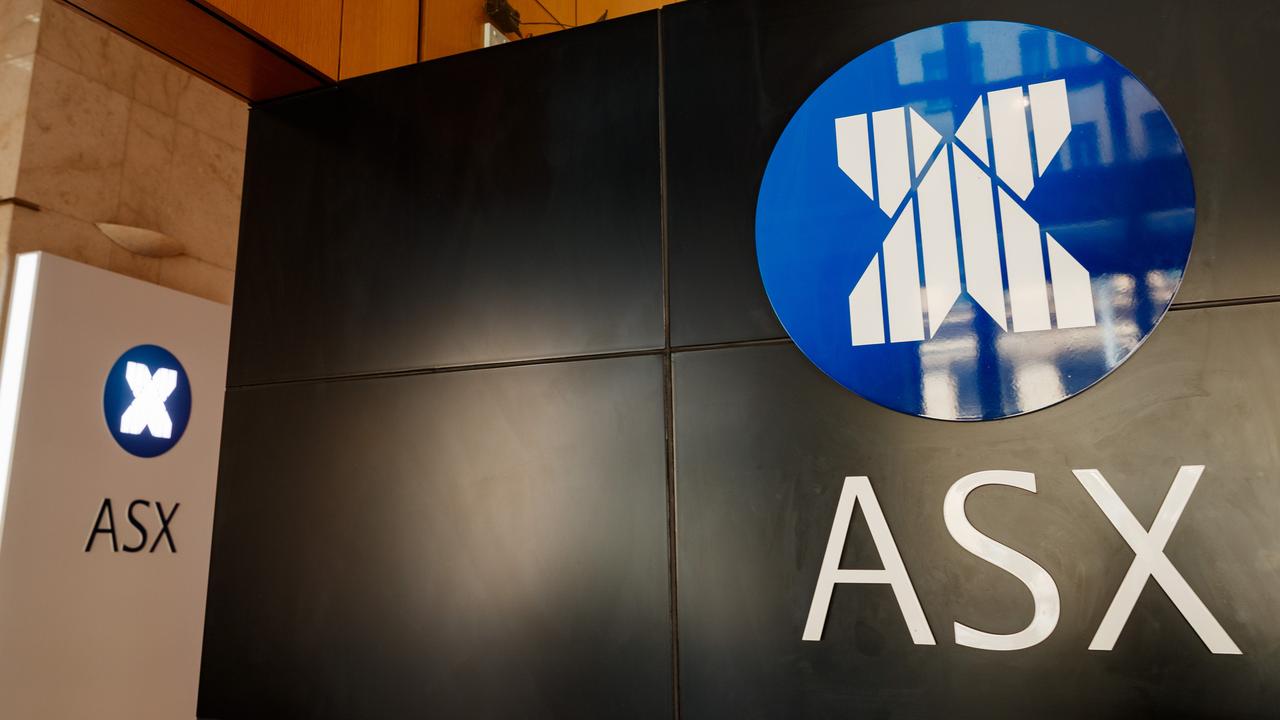Aussie share market plunges as jobs data fails to encapsulate pandemic horror
Australian stocks have been battered once again in a sign these depths of the pandemic-induced falls are yet to be reached.

Investors hoping the worst of the share market losses were over were dealt a costly blow today with the Australian index plunging more than 2 per cent early.
The ASX had been showing signs of life, edging higher over the last couple of weeks, but sceptical analysts were vindicated when the local market followed the fall from US stocks.
A flurry of bad news released overseas has served as a reminder of the coronavirus’s crippling effect on widespread industry and plummeting consumer sentiment, IG market strategist Jingyi Pan said.
“A triple whammy of disappointing US data, soft earnings numbers and slump in crude oil prices struck Wall Street on Wednesday, leading us back into the risk-off mood for market once again,” he said.
The market has recovered slightly throughout the day with the ASX down more than 1.3 per cent near 12.30pm Sydney time.
RELATED: $133m lifeline for childcare centres
RELATED: When $1500 payments will kick-off
RELATED: Report extends forecast for deep recession
The Australian workforce has been battered by the collapsing economy but the unemployment rate released earlier today was better than experts had predicted, rising just 0.1 per cent to 5.2 per cent.
However this March set of data is essentially irrelevant given it doesn’t encapsulate the period impacted by the pandemic, BIS Oxford chief economist Sarah Hunter said.
“The survey data that underpins the release was gathered in the first two weeks of the month, before the major restrictions on activity were put in place. We’ll have to wait until next month to get a clearer idea of the impact on the labour market,” she said.

Ernst & Young counterpart Jo Masters agreed, saying the survey asks the population about unemployment in the first two weeks of the month, narrowly avoiding the chaos of the national shutdown.
“In more normal times, this detail gets little attention but the economy is deteriorating so quickly at the moment that the reference period has impacted the narrative,” she said.
The rate is expected to climb rapidly in the coming months with the Federal Government predicting a rise to 10 per cent in June.
The Australian Bureau of Statistics will begin releasing weekly payroll and wage data to more accurately document the fast-moving destruction to the economy.
‘ONCE IN A CENTURY’
Westpac’s April market outlook released last week said the health and economic crisis from the coronavirus outbreak was a “once in a century” event.
The major bank is now expecting the Australian economy to suffer three consecutive quarters of retractions.
The report heaps praise, however, on the Federal Government’s fiscal response, revising its expectation for unemployment from 17 per cent down to 9 per cent for the middle of the year due to the eye-watering $130 billion JobKeeper package.
But the positive sentiment drawing from the Morrison Government’s willingness to splash cash won’t last, the report warned.
Australian stocks have surged in value this week and closed nearly 3.5 per cent higher at the close of trade on Thursday but the heavy losses inflicted since mid-February will resume.
“Markets are currently buoyed by governments’ stimulus packages,” according to the report from Westpac’s chief economist Bill Evans.
MIDDAY MARKET BREAKDOWN
All sectors but consumer staples and healthcare stocks were in the red at 1200 AEST.
The big banks were hit hard in early trade.
Commonwealth Bank fell by 2.34 per cent to $60.62, Westpac dropped 3.22 per cent to $15.765, NAB shed 2.64 per cent to $16.20 and ANZ fell by 2.06 per cent to $16.50.
Macquarie Group dropped 2.13 per cent to $98.81 while Bendigo Bank, which has withdrawn its second-half outlook commentary, lost 3.07 per cent to $6.00. Crown Resorts’ shares fell by 0.12 per cent to $8.25 after the company stood down 11,500 of its employees because of the coronavirus restrictions affecting its casinos in Melbourne and Perth.
Australia’s unemployment rate rose by 0.1 of a percentage point for the month as the data was collected before widespread coronavirus restrictions that left thousands unemployed.
The unemployment rate inched higher to 5.2 per cent following the Australian Bureau of Statistics survey of about 50,000 people in the first two weeks of March.
Consensus estimates had been for an uptick to 5.4 per cent before an acceleration in April.
Toll giant Transurban also fell at the open, losing 3.42 per cent to $12.44 after car trips on nearly all the company’s Australian roads fell in the three months to March 31.
Big miner BHP dropped 3.4 per cent to $30.36, Rio Tinto slumped by 1.73 per cent to $88.23 and Fortescue Metals shed 2.59 per cent to $11.105. The energy sector was down by a collective 1.61 per cent on an overnight oil price slump.
Woodside Petroleum fell by 1.15 per cent to $20.975 after posting a more than 20 per cent fall in first-quarter sales revenue.
Whitehaven Coal shares dropped by 8.01 per cent to $1.895 after pushing back a decision on its $700 million Vickery coalmine investment in NSW. Biotech CSL was up 0.42 per cent to $325.50.
A2 Milk was up 2.65 per cent to $18.58 and Woolworths climbed 1.63 per cent to $36.80 to keep consumer staples in the black.
— with AAP’s Alex Druce

“But as we move through the June quarter and stimulus packages fade into the background, the economic damage and the pessimism around the virus will dominate markets.
“Prospects are now for a deep recession in 2020, with output to contract in the March, -0.7 per cent, June, -8.5 per cent, and September quarter, -0.6 per cent.”
Westpac then expects the bounce to come, rising more than 5 per cent in the December quarter and limiting the year’s loss to 5 per cent on the whole.




